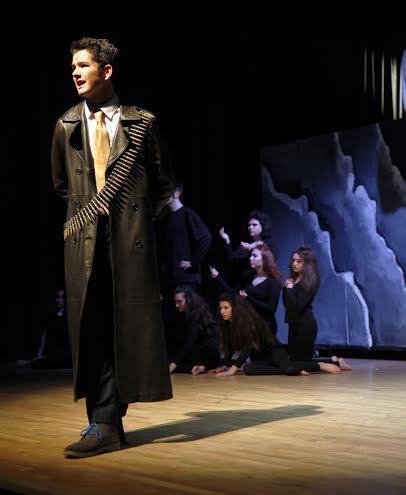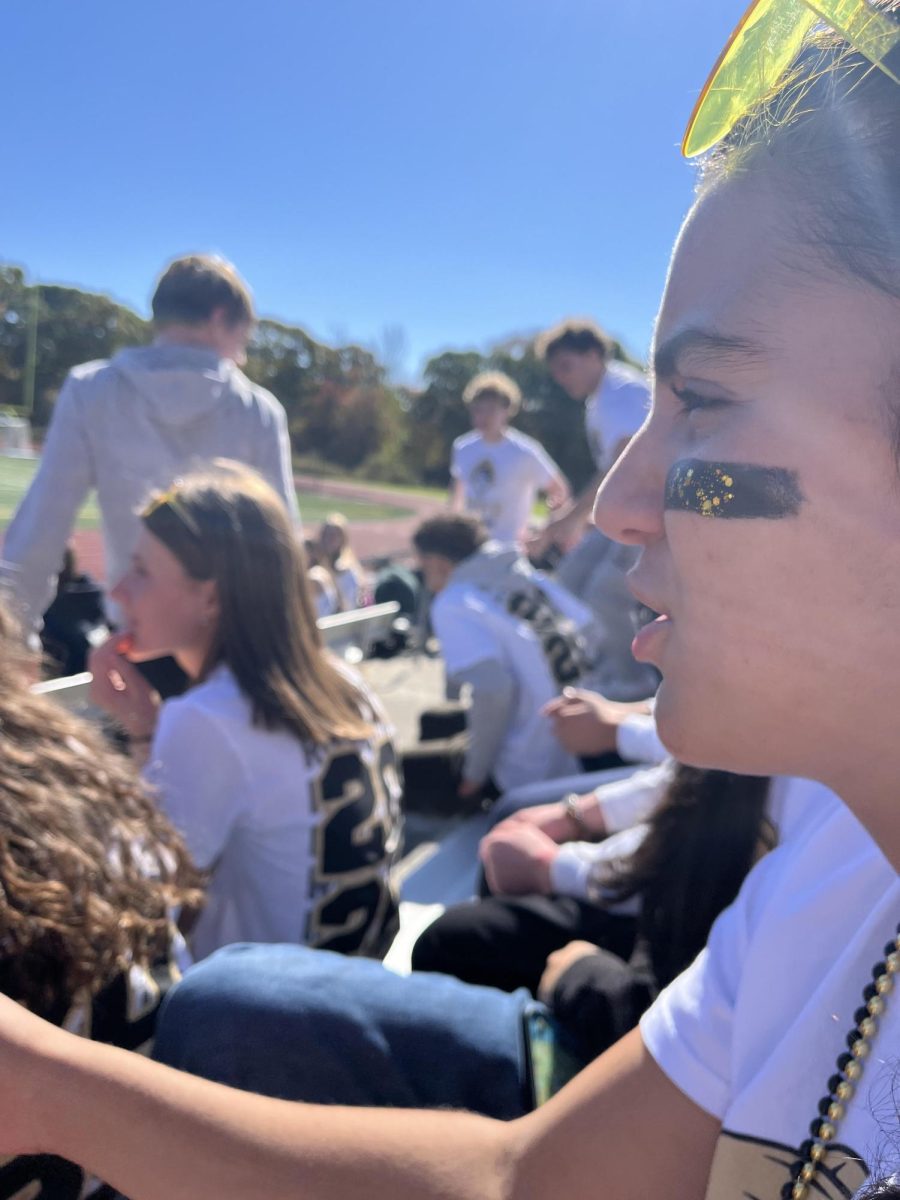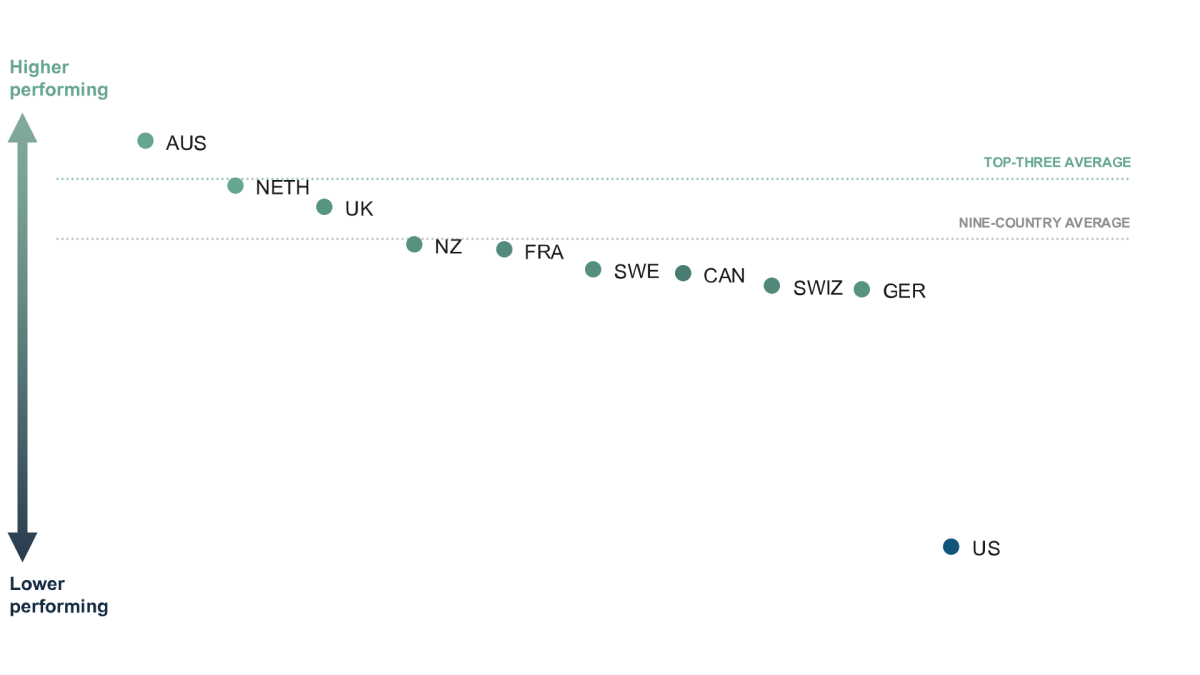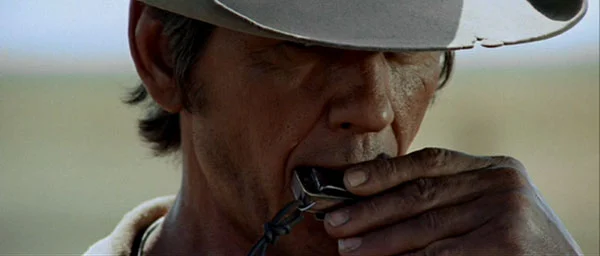NKHS takes on a classic

Senior Mikhail Hyde plays King Creon in the NKHS production of Antigone
If you told someone to go see a play that involved a hockey stick duel, an antagonist wearing a trenchcoat and a bandolier, and a set that vaguely resembles Stonehenge, they might tell you that they have much better things to do with their weekend.
When I originally heard about the play and its relatively experimental nature, I was a little hesitant about going. However, I am pleased to say that I was pleasantly surprised by the NKHS interpretation of Antigone.
Antigone is a tragedy by the Greek playwright Sophocles. The NKHS adaptation starts off with an intense fight between Eteocles (Jon Hazel) and Polyneices (Justin Cabot-Miller). Instead of traditional Grecian swords and armor, Eteocles and Polyneices don hockey pads and wield hockey sticks in a battle that results in the death of them both. Antigone (Amelia Bowen) and her sister Ismene (Abby Dufresne) are rife with grief after their uncle King Creon (Mikhail Hyde) declares Polyneices a traitor, denying him the proper burial ceremonies. Antigone decides to act against King Creon, resulting in her imprisonment and eventual suicide which leads to the suicide of Antigone’s fiancé and Creon’s son Haemon (Ethan Marble) as well as the suicide of Creon’s wife (Elise Felker).
This tragedy’s highly emotional plot requires a very high level acting to make it work. Luckily, NKHS has acting talent in spades. The dynamic between Antigone (Amelia Bowen) and Ismene (Abby Dufresne) was incredibly heartfelt, delivering some of the most emotionally moving parts of the play. Mikhail Hyde’s acting as King Creon truly brought the role to life, making the audience feel pity, empathy and hatred all at once.
Instead of a full sized pit orchestra, “Antigone” had a minimalistic group tasked with painting the sonic landscape of the play. Consisting of drama club counselor Mr. Robert Shaffer on percussion, Dan Alexander on acoustic guitar, Catherine Reilly on violin, and Sam Hollister on piano, the group took a relatively sparse approach that helped emphasize the disquieting nature of the production. At many points Shaffer was the sole instrumentalist, playing primal rhythms on his congas or the bass drum. The pit was extraordinarily professional-sounding and the musicians added another level of prowess to this great performance.
Overall, I would give the play 4.5 out of 5 stars. The acting, music, and choreography were superb, but some of the more experimental parts of the play might have been lost on the general audience. If I had the opportunity, I would definitely watch it again.
Your donation will support the student journalists of North Kingstown High School. Your contribution will allow us to distribute a print edition of the Current Wave to all students, as well as enter journalism competitions.










